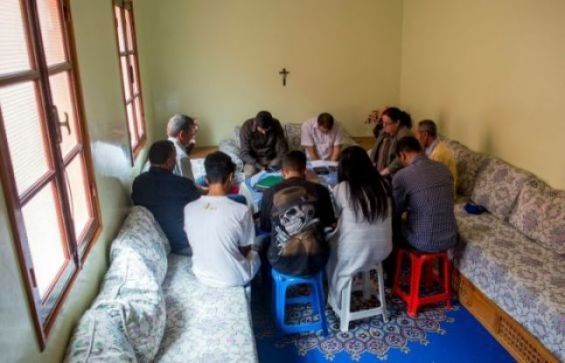The US Department of State released its report on international religious freedom for 2020 last week. The report, which traces restrictions on religious minorities in 200 countries around the world, devotes a section to Morocco. The US Department recalls that more than 99% of the Moroccan population is composed of Sunni Muslims, while Shiites, Christians, Jews and Baha'is represent around 1%.
Thus, as in previous years, Sunni Muslims and Jews remain «the only religious groups recognized in the constitution as native to the country». The document thus underlines that the Moroccan authorities «deny Christian citizen groups freedom of worship in churches, the right to Christian or civil marriage and funeral services, and the right to establish churches».
The government «denied official recognition to NGOs that it considered to be advocating against Islam as the state religion», the same source added.
The report cites the arrest of actor Rafik Boubker for making «blasphemous remarks against Islam and attacking the sacredness of worship» in a social media posting as well as the arrest of Salafist leader Abu Naim, who called on the government to close «casinos, bars, and debauchery…instead of talking about mosques».
Less restriction on freedom of worship
The US Department of State also evokes the expulsion, in February 2020, of three students affiliated with Al Adl Wal Ihsane from the University of Agadir for «insulting public officials and defamation of things intended for public benefit», recalling that the Jamaâ, banned but tolerated by the authorities, has «continued to release press statements, hold conferences, manage internet sites, and participate in political demonstrations» over the past year.
Overall, and over the past year, «there have been no reports» of unregistered religious groups being prohibited from practicing their religion in private, the report says. However, the same source adds that «community leaders from various Christian groups said authorities continued to make telephone or house calls to demonstrate that they continued to monitor Christian activities». Citing «various sources», the report added that «the authorities said the purpose of such monitoring was to protect minority religious communities» and that they «they would be monitoring their compliance with COVID-19 restrictions».
For Christian Moroccans, the report explains that their leaders said there was «no report» that authorities pressured converts to renounce their faith. The US Department of State also recalls that «the government’s refusal to allow Shia Muslim groups to register as associations continued to prevent these groups from gathering legally for public religious observations».
These Shiites «were able to pray in Sunni mosques, but they risked criticism from other worshippers for their religious practices». The Shiites also «reported they did not attempt to register during the year because they feared security forces would harass them, as had been the case in previous years».
A positive change for societal tolerance
As for Moroccan society, the report informs that representatives of minority religious groups have stated that fear of social harassment, including rejection by families, discrimination in employment and potential violence against them by «extremists», were the main reasons which pushed them to practice their religion in a discreet way.
The same source added that members of the foreign clergy have «discouraged some Christian Moroccans from attending services for fear of social harassment».
However, «Christian and Jewish representatives stated that they had seen a positive change in regard to societal tolerance, which they attributed to the 2019 visit by Pope Francis and statements at that time by the King».
Shia Muslims, for their part, said that many of them «avoided disclosing their religious affiliation in areas where their numbers were smaller». Media, activists, community leaders and Christian converts have reported that Moroccan Christians «faced social pressure to convert to Islam or renounce their Christian faith from non-Christian family and friends».
«Young Christians who still lived with their Muslim families reportedly did not reveal their faith because they believed they might be expelled from their homes unless they renounced Christianity», the report adds.
The same source also reported that Baha'i leaders have claimed that they have not been subjected to harassment in the previous year, while Jewish citizens have «continued to state that they lived and attended services at synagogues in safety» and that they can «regularly hold annual commemorations».





 chargement...
chargement...












